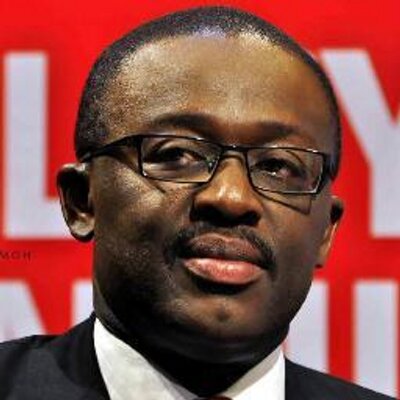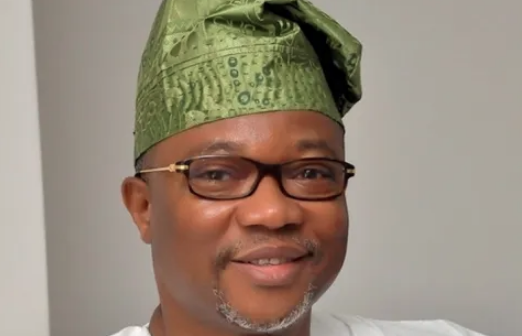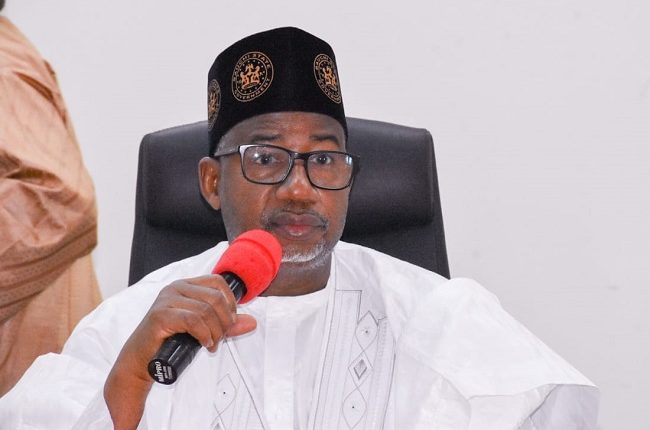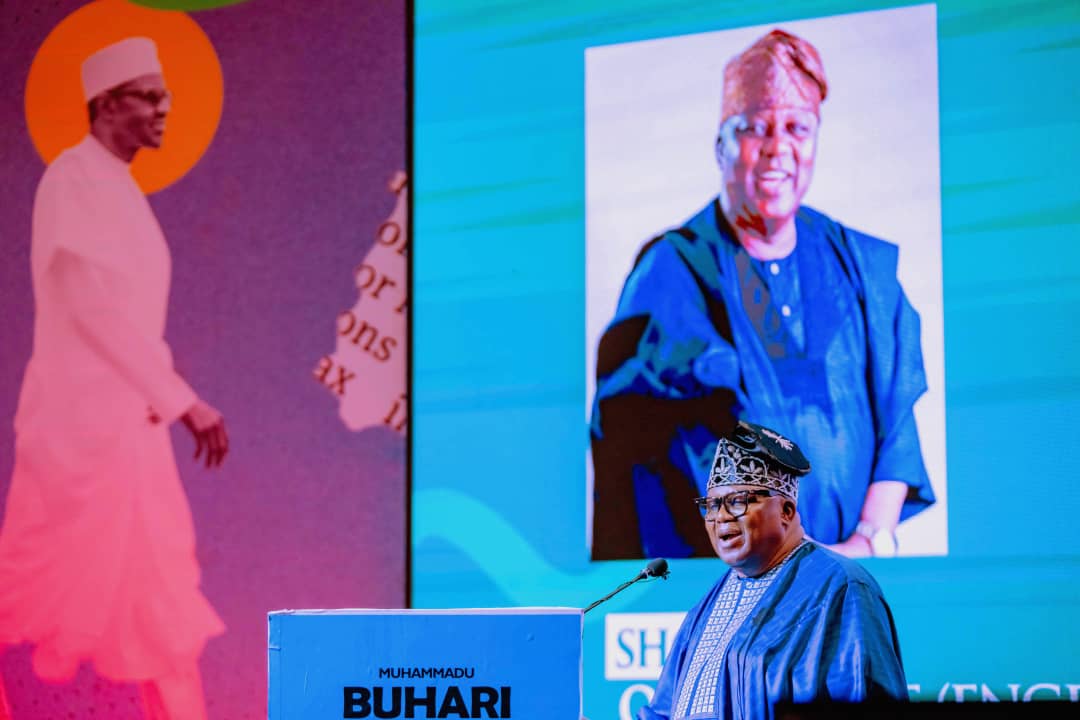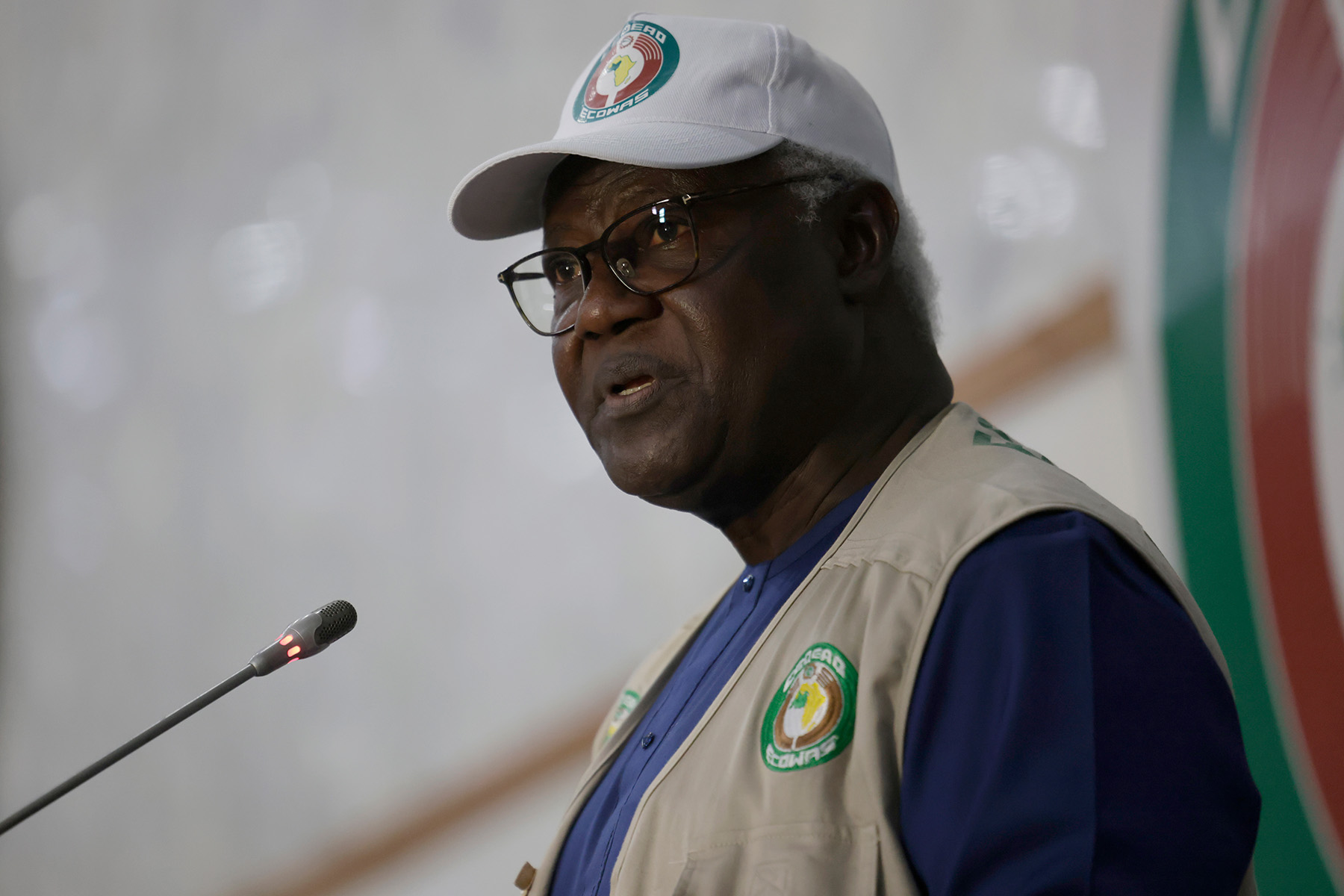When I received the message and then had a phone conversation with Funlola Fowowe-Jeje on Monday, January 8, 2024, that I was required to do this book review today January 12, 2024, all I could think to say was, “How do I get the book? When? How soon?”. On reflection, that conversation was a throw-back to our days in Guaranty Trust Bank. The only thought on my mind was the deadline! And how I was not willing to accept the embarrassment of defaulting on it! Funlola on the other hand, had no doubt that I would accept and fulfil the obligation she was thrusting on me, at such short notice!
And then less than ten (10) minutes later, as I read the first few pages of the manuscript, my mind went back involuntarily to a room in then NAL Training School, Victoria-Island, sometime around January 1991, thirty-three years ago, where under Fola Adeola’s influence and direction, we the 84 or so “converted dreamers” who embarked on a journey to build the best bank in Nigeria and sub-Saharan Africa were sharing our vision(s) of the bank we were committing to build. I was presenting on behalf of my group. For many years, my colleague and friend, Abubakar Sadiq Bello never ceased to tease me about how I was “bouncing” across the stage, with passion and devotion as I preached a sermon or perhaps shared a vision, and now I speak in a faith sense, about the bank we were going to build. I do recall Fola mentioning Jesus Christ and his disciples in his comments on my impassioned presentation. And you know the surreal part of it all-everything we said on that day has come true! We transformed standards of customer service in Nigerian banking and delighted our customers; we built a successful Nigerian banking institution, a well-respected brand, a very profitable bank; we pioneered a unique culture within Nigeria’s corporate sector; and we were all better-off than we were then, to varying degrees, by our participation in Guaranty Trust.
The other reflection I got sucked into was, so Fola is 70! How time flies! How it seems just like a few years ago!!! I’m sure in Fola’s mind, perhaps he forgets that Guaranty Trust was started more than three decades ago, when he was in his mid to late thirties! As I was reflecting on Fola’s advanced age, as the Bible says-pointing one finger at him, alas, four fingers were pointing back at me! I, a 25-year-old youth at the time, am just three months short of my 59th birthday today!!! And so, it is for all of us gathered here today in honour and celebration of our boss, mentor and friend, Fola Adeola, Founder and first Managing Director/CEO of Guaranty Trust Bank. We all have grown since 1990, just as Guaranty Trust Bank has grown and prospered, and Fola has reached the blessed age of 70!
The Book
Advertisement
The book I have been asked to review, Fola Adeola: One Man, Many Dimensions authored by Ifelanwa Osundolire is part biography, part history, part leadership and entrepreneurship, institution-building and policy, part love story, and part nostalgia. It is the story of (a part of) the life of Afolabi Tajudeen Adeola, more popularly known as Fola Adeola. At its core, it is the story of the bank he founded, but it also talks about Fola’s other transformational imprints on Nigeria’s pension system; on the charitable and entrepreneurship development sector with Fate Foundation and even in this hallowed space of the respected Metropolitan Club. It is an excellent read in spite of the fact that the author who by his own account has a background in architecture as well as an evident passion for literature, which he does very well, had only four months to do the entire book, including interviews, background research, writing and pre-production. I think the author might have worked successfully in Guaranty Trust, but then he admits that he did work with a boss, General Tunde Reis who tried to model his company after the bank.
The book consists of three core chapters: –
- Chapter 1: 1954-1980 which tells the story of his formative years
- Chapter 2: 1980-2002, his professional career and Guaranty Trust Bank years, and
- Chapter 3: 2002 to date which is christened “The After Years”
In Chapter 1, we read the story of his formation, within the context of the Adeola family and get the impression of a humble and disciplined upbringing in an Egba, Yoruba cultural setting, in Lagos and situate him as a son and brother. Expectedly the story is told by family members-Engineer Bayo Adeola, Yinka and Yemi Adeola, his sister, cousins and others. We read about his education at St. Pauls Breadfruit and Methodist Boys High School, Lagos, notably both Christian schools reminding us of the notion of “triple heritage” popularised by Ali Mazrui-a synthesis of deep Omoluabi culture, Christian education and “Ile kewu”, explaining Fola’s versatility across all three contexts. We read about the house of his early upbringing-42, Kosoko Street, Lagos; his neatness and style, and his long-term friendship with Mr. Bode Agusto (May his soul rest in peace), who became our teacher and trainer at Guaranty Trust Bank’s Training School, and an excellent one at that. We encounter Fola and his siblings’ diligent participation in his late, dear mother’s business ventures (a sophisticated way of saying hawking her goods for sale) and we see a possible link between his childhood scouting and his choice of the accounting career through scoutmaster, Rex Carter. I am also struck by the image of Fola as a loving aburo, who went visiting his Egbons along with Bode Agusto.
Advertisement
It is in Chapter 2 that we read about Guaranty Trust Bank. The author starts the story by situating the formation of the bank within the political economy of the time-the liberalising policies of the Ibrahim Babangida regime, which led to the banking sector deregulation and licensing of new banks which gave Fola and his entrepreneurial peers the opportunity to become bank owners. We may contrast that era with the lost decade of economic stagnation-2014 to 2023 that Nigeria recently went through! Fola took a decidedly ethical and professional path as a bank founder and CEO, and built a culture of entrepreneurship, professionalism, customer service and corporate governance within the bank. We read of the collaboration of Fola and Tayo Aderinokun, and the roles of Chief J. K Agbaje, Akin Akintoye, Gbolade Osibodu, Tokunbo Adesanya and Femi Pedro amongst others in the journey to this new bank.
This chapter is understandably peppered with testimonies from former Guaranty Trust Bank employees-Cathy Echeozo, Aunty Mo, Kafilat Araoye, Joke Chukwuma, Mahmoud Isa-Dutse, Yomi Odedeyi and many others. It examines Fola from multiple perspectives-entrepreneur, talent scout, visionary, leader, angel banker, coach and friend, and a caring man. We see the essence of Mr Adeola’s transformative impact on the institution and the individuals in this part of the book, in the service culture, in the unique cultural and physical architecture of the bank which many of the respondents say has shaped their own lives, in the professionalism and ethical stance he instituted, and in the legacy of seamless succession, he enshrined in the bank. We also see some of the challenges, one minor example being Dayo Adeola’s discomfort at small girls in the bank calling his “Boda Kekere”, Fola!
Fola Adeola has not been idle since he took the honourable decision to step down from the bank in 2002. In Chapter 3, we read about Fola’s life after Guaranty Trust Bank. We see him as pension reformer; presidential running-mate along with Mr Nuhu Ribadu, now the National Security Adviser; as social entrepreneur through Fate Foundation; and as President of the Metropolitan Club, where we are seated. You may have to agree with one of his brothers who says, he has the Midas touch-whatever he touches turns to gold! As I reflected on his post-Guaranty Trust Bank activities, the question I asked myself and that analysts of business and policy should examine is, what is Fola Adeola’s single most important transformative impact on Nigeria? At first glance, the answer will be deemed quite easy-Guaranty Trust Bank! Most private sector observers and certainly the bank’s alumni will easily be of this opinion. However, to analysts of public policy, at the very least, the conclusion will require careful analysis. Fola’s reforms of Nigeria’s pensions system and establishment of the contributory pension system, which resolved the erstwhile problematic pensions dysfunction, accumulated investment funds now reportedly reaching N17.29Trillion by August, 2023, thus potentially providing funding for long term investments; curbed at least one dimension of our social chaos and established a sustainable, funded pension system, may be a powerful macroeconomic and systemic contribution beyond an individual’s entrepreneurial legacy. I do not suggest it is an easy choice; I just suggest that there is a valid debate there! Fola’s contribution, (or perhaps at this point I should address him as Pa Fola Adeola) at Fate Foundation; and I’m told here at Metropolitan Club are also worthy of mention.
Theoretical, Conceptual or Counter-Factual Reflections
Advertisement
A book review of course presents an opportunity to ask questions the author might not have asked, examine alternate perspectives or at least to add some value to the discourse.
One not-so-important observation is that the author and I, have mostly referred to the bank as “Guaranty Trust Bank” and not GTBank or GTCo as it has become known contemporaneously indicating perhaps the generation of the bank I, and those who may have briefed the author belong to!
Then a researcher such as I am might ask how the sample of respondents, especially from ex-bank employees were selected? Was it a probabilistic or purposive sample, as they say in research methodology? Both sampling methods are of course accepting depending on the researcher’s underlying rationale for their adoption. However, the theory around purposive sampling suggests its choice may be underpinned by a desire to focus on “information-rich” respondents. If so, some respondent(s) who the inquisitive reader might wish to read from might be the third and current CEO of the Bank Holding Company, and/or the MD of the Bank, who by definition are very information-rich!
Next, the word that is used across the book to describe Fola Adeola, both by the author and some of his respondents is “transformative” or “transformational”. As a long-term student of strategy, leadership in the knowledge economy, and innovation and change management, I suggest we may examine the definition and conceptual elements of transformational leadership. The transformational leader is one who elevates the motives of the followership beyond selfish interests in favour of a higher organizational vision. He communicates the lofty vision and converts followers, and together they pursue and achieve this higher ideal. The transformational leader, may like the transactional leader negotiate objectives and rewards/sanctions with followers, but that is not his essence. Leadership literature suggests four critical elements of transformational leadership-idealized influence or what may colloquially be referred to as charisma, inspirational motivation, intellectual stimulation and individualized consideration (Bass and Steidlmeier, 1999). Most of the respondents in the book and most alumni of the bank would agree that Fola appears to be a text-book example of transformational leadership going by this definition. The only other question can only be answered by Fola Adeola in his own book, when he writes it-did he read about transformational leadership and model himself after the concept or did he act as he thought fit or effective, and his behaviour matched the theory? Whichever the answer is, will contribute to the debate over whether leadership is born or made!
Advertisement
I am also interested in reading about whether Fola’s experience at the bank was instrumental or significant in shaping his desire to reform Nigeria’s pension system?
Fola will also have to make sense, in that expected book, of what some critics may regard as his two misadventures-the Transcorp and “running mate” matters and some other endeavours that may not have been mentioned in this book!
Advertisement
Finally, I should note that this book does not claim to be the comprehensive biography of Fola Adeola’s life. It speaks of the family he was born into, but not of the family he created; it does not have the benefit of the subject’s own perspective and interpretation of his life; and does not fully locate him in the socio-economic and political milieu in which he came to become such a transformational figure. We don’t really get a sense of what challenges and trials Fola faced in his life and we don’t have explicit consideration of what his philosophy of life is.
The last part of the book contains transcripts of the interviews done by the author with family members, ex-Guaranty Trust Alumni and some other respondents, in their actual words.
Advertisement
Concluding Thoughts
Fola Adeola has lived an active and fruitful life. And knowing him, life may just begin at 70! I will not be surprised if over the next one or two decades, our boss records a few more significant achievements. Some have suggested I should expect to see him on the diplomatic scene. Others will like to see him in government and policy circles. One person told me he is in fact a “silent godfather” in his home state, Ogun. Will he, like one of his followers, build a university focused on entrepreneurship, business and technology, building on Fate Foundation? Might he one day resume his influence and impact in a more direct manner, on Nigeria’s financial services industry, in one form or other? Or perhaps, is he already doing so? Is he satisfied that the legacy of customer service, institution-building and governance he instituted at Guaranty Trust Bank is enduring or has endured?
Advertisement
Only time and Almighty God knows the answers to these questions. What I will dare to predict is that 70 is not close to the end for Mr Tajudeen Afolabi Adeola. It may just be the beginning of another phase!
I must end this review and exploration by commending the author for producing a worthwhile account of Fola Adeola’s very worthwhile life, in four months. Some of us, who knew Fola before the book, learnt a few things we did not know before, especially about his childhood and upbringing. I even learnt somethings from accounts and testimonies of several of my colleagues, and from Fola’s friends and family members.
I also want to thank the team that got the book published, and put this event together. May we all be celebrated when we reach 70; may Guaranty Trust Bank endure and thrive as a testament to Fola and all of us gathered here this evening; may Nigeria’s pension system continue to grow and may it fulfil its potential; and may Nigeria succeed. Amen.
Agbaje is an alumnus of Guaranty Trust Bank, having worked in the bank from inception in 1990 until 1999 across Consumer Banking at the Plaza; Ikeja Branch at inception, in Corporate and Consumer Banking; Financial Institutions; and Institutional Banking Group in Ikeja. He left the bank as an Assistant General Manager, is a consultant in strategy, economy and policy; and is currently engaged in research in leadership, innovation and change, and the knowledge economy. He is a devout Christian, a Knight of John Wesley (KJW) and Otunba in Remoland, as well as Eta Giwa in Ijebuland. He founded and manages RTC Advisory Services Ltd.
Views expressed by contributors are strictly personal and not of TheCable.
Add a comment
